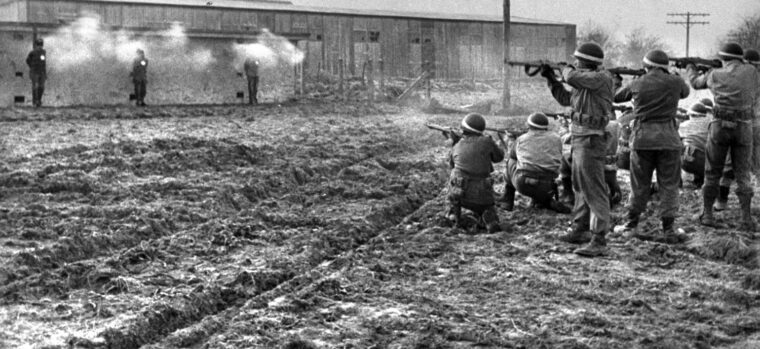
European Theater
Operation Greif and Otto “Scarface” Skorzeny
By Don HollwayWith a quarter of a million German troops pouring through the Ardennes Forest, three Americans fleeing in a jeep should have raised no alarm. Read more
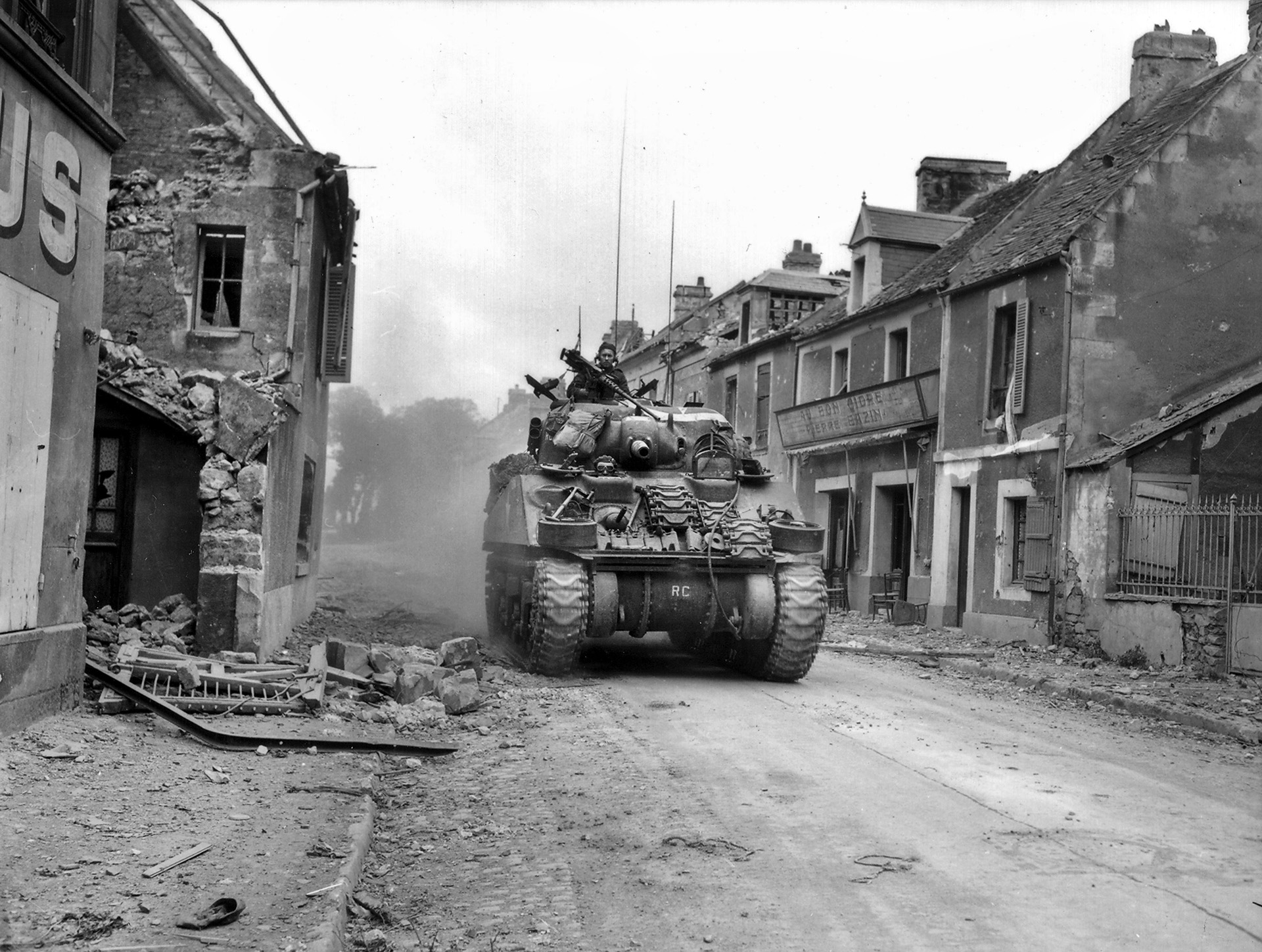
The European Theater of Operations (ETO) during World War II is generally regarded as the area of military confrontation between the Allied powers and Nazi Germany and Fascist Italy. The European Theater encompassed the Atlantic, Mediterranean, Eastern Front, Western Front, and Arctic areas of operation.

European Theater
With a quarter of a million German troops pouring through the Ardennes Forest, three Americans fleeing in a jeep should have raised no alarm. Read more
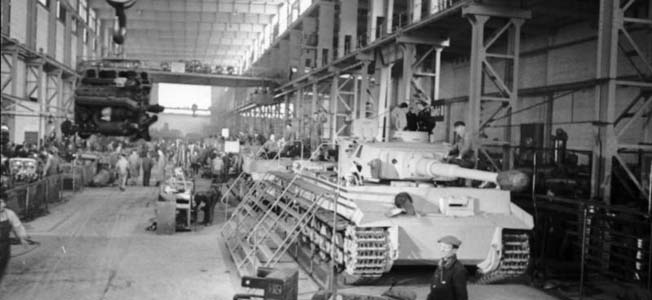
European Theater
“Hitler’s generals, raised on the dogma of Clausewitz and Moltke, could not understand that war is won in the factory.” Read more
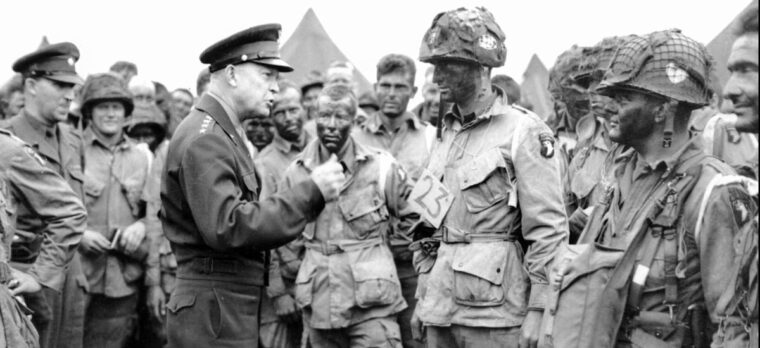
European Theater
Made popular by the Band of Brothers portrayal of Easy Company, the U.S. paratrooper “cricket” was in fact used to identify each other in the predawn hours of the D-Day invasion. Read more
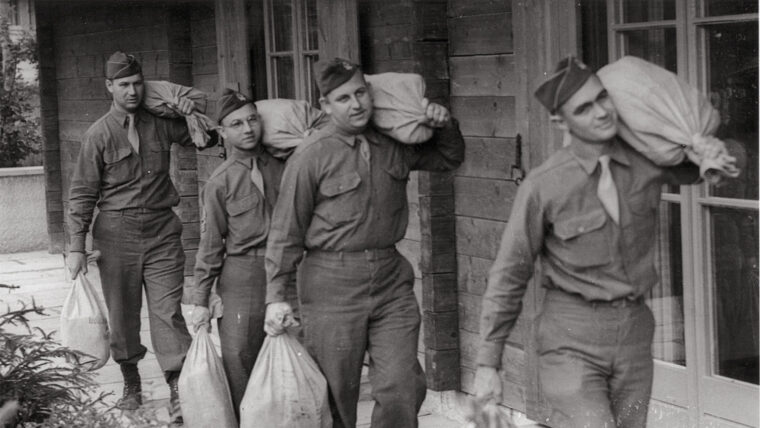
European Theater
By the spring of 1945, Hitler’s thousand year Reich had come crashing down in flames. The Allied armies that had landed at Normandy almost one year earlier had penetrated deep inside Germany. Read more
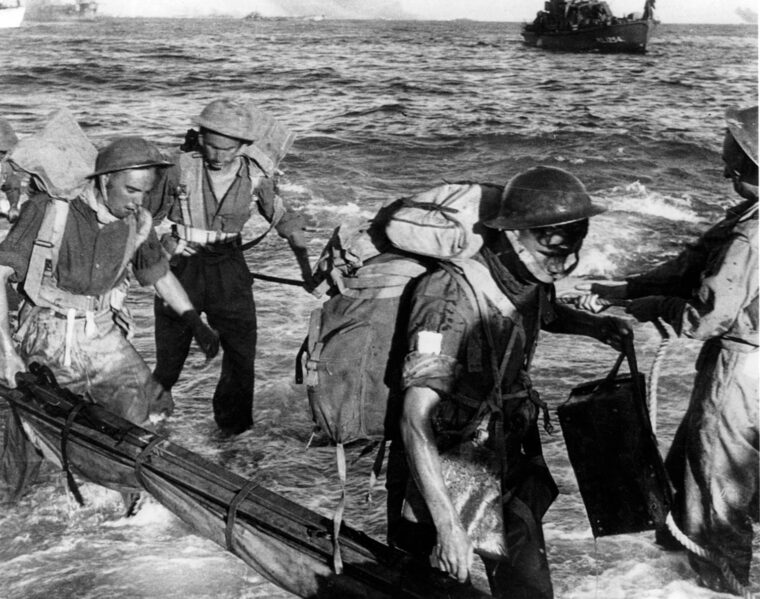
European Theater
Operation Husky, the invasion of Sicily, was the only operation in World War II in which generals Bernard Montgomery and George S. Read more
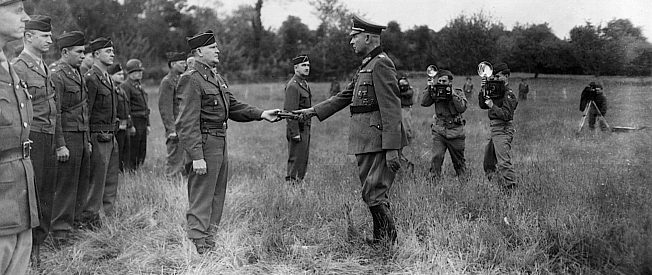
European Theater
It was said on May 8, 1945, that some of the victors wandered around in a daze. They were puzzled by a strange silence. Read more
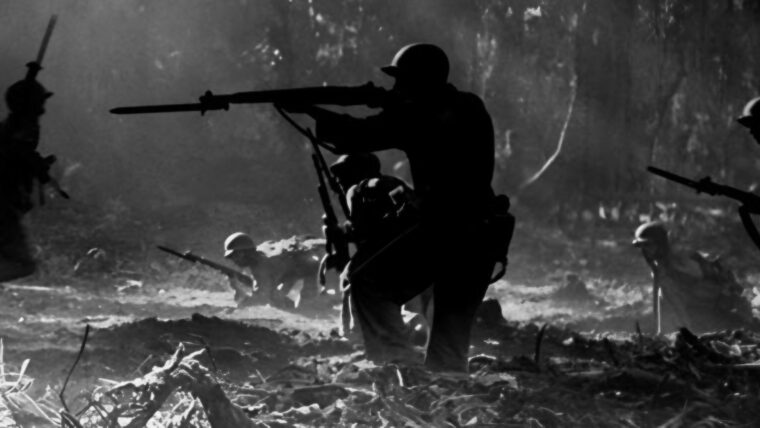
European Theater
When the United States was plunged into World War II on December 7, 1941, more than 16 million Americans answered their country’s call and donned a uniform. Read more
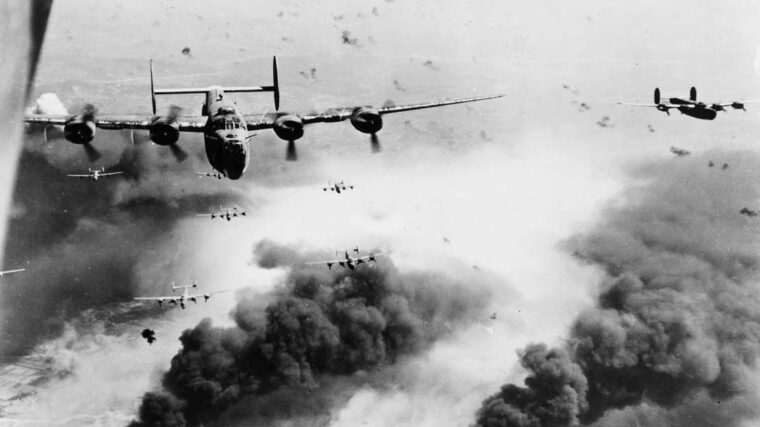
European Theater
Lieutenant Richard Britt, navigator aboard a Consolidated B-24 Liberator bomber named Chattanooga Choo Choo, woke up to find himself trapped in the wreckage. Read more

European Theater
The most contentious of command rivalries during World War II involved General George S. Patton, Jr., of the U.S. Read more
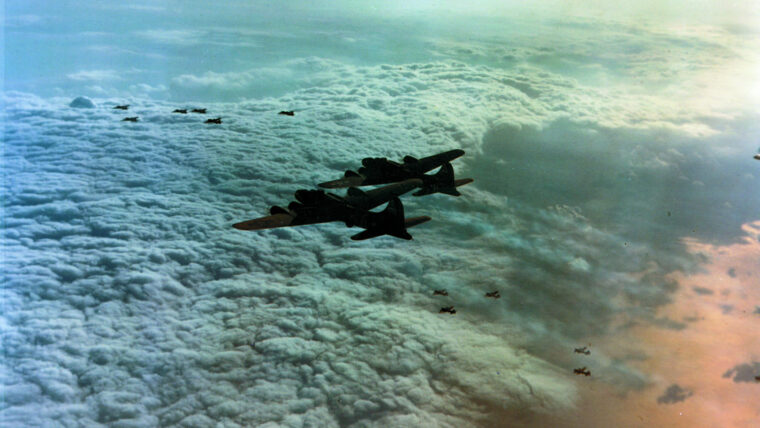
European Theater
When the call came that morning, it was not unlike the 25 times previously when they had flown, or all those other times when weather intervened and postponement was ordered. Read more
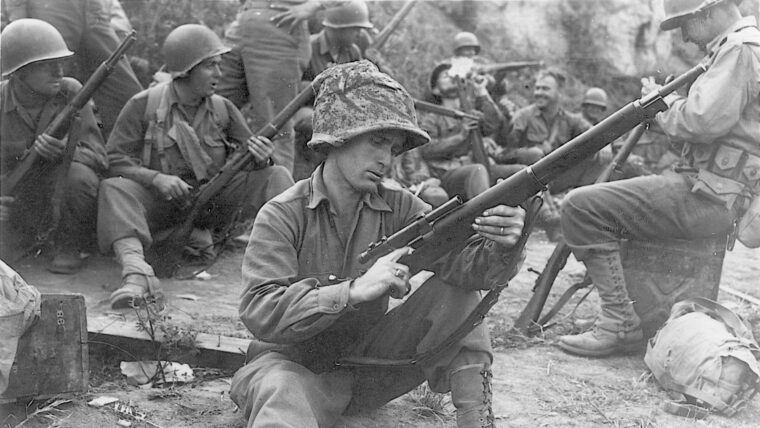
European Theater
The attempted crossing of the Rapido River in Italy by two infantry regiments of the U.S. 36th Division in January 1944 was one of the costliest failed attacks made by American forces during World War II. Read more
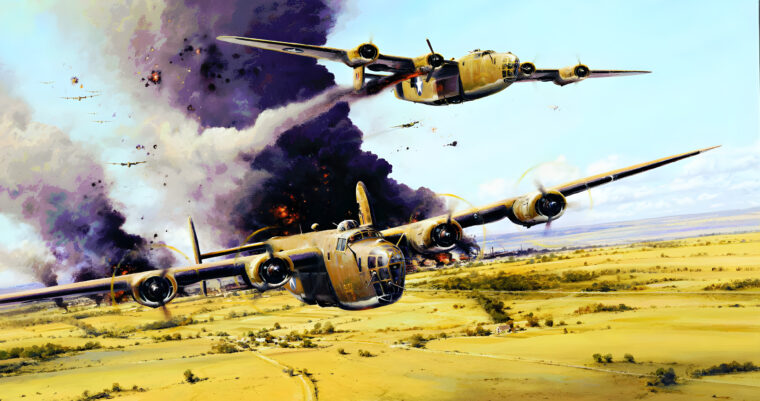
European Theater
If there was a name of a prospective target that caused Allied airmen in the European Theater of Operations to blanch in the fall of 1943 and the spring of 1944, it was Ploesti. Read more
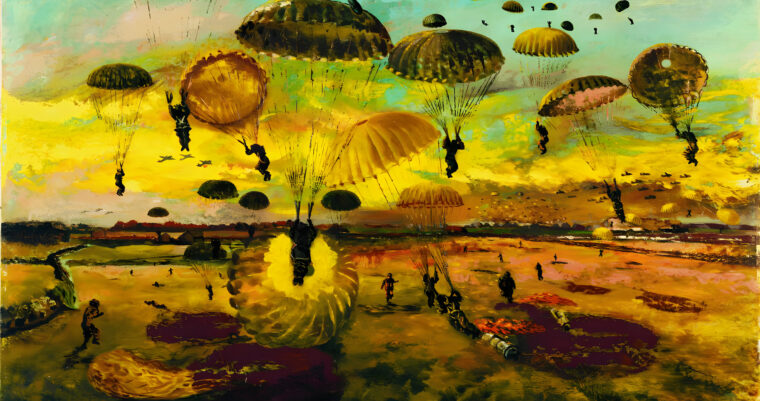
European Theater
Just boys facing danger, please God make them men; If they live through the danger, make them boys once again. —Sergeant Ginger Woodcock, June 5, 1944
On the morning of June 6, 1944, the greatest amphibious fleet in history bore in toward the coast of Normandy. Read more
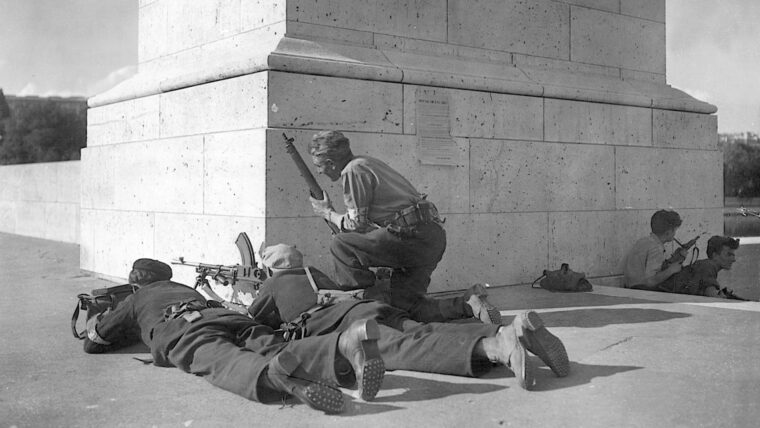
European Theater
On a moonless night in January 1944, in the Haute Savoie region of southeast France, the drone from the engine of a RAF bomber could be heard in the distance. Read more
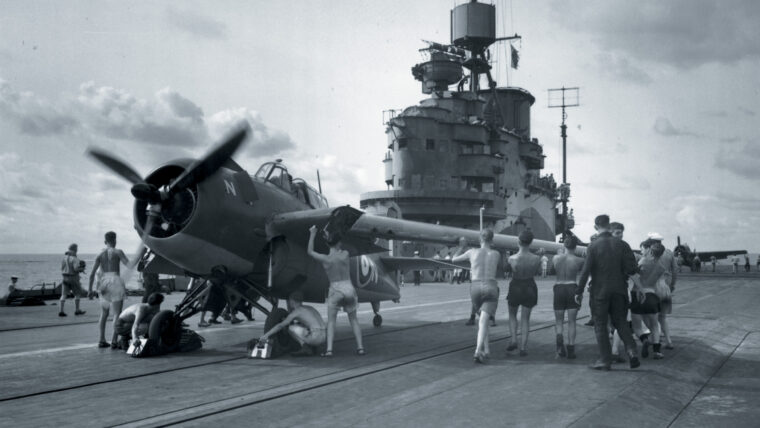
European Theater
When one thinks of carrier warfare in World War II, the Japanese and U.S. navies usually come to mind. Read more
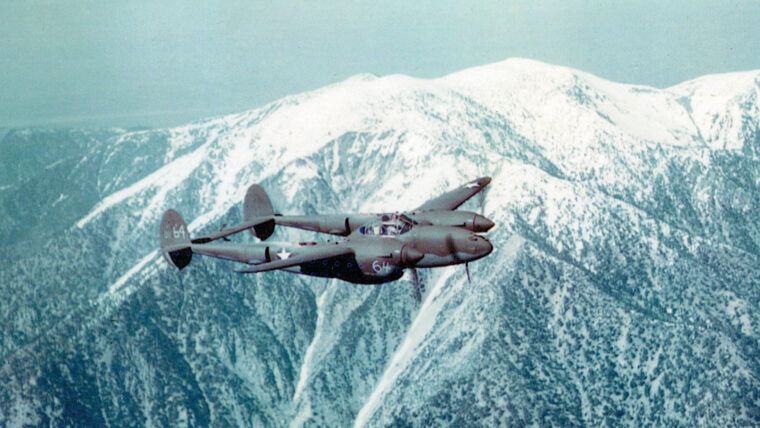
European Theater
Due largely to their use in the postwar U.S. Army Air Forces and present proliferation among the air show community, the North American P-51 Mustang is thought of by many as the most important American fighter of World War II. Read more
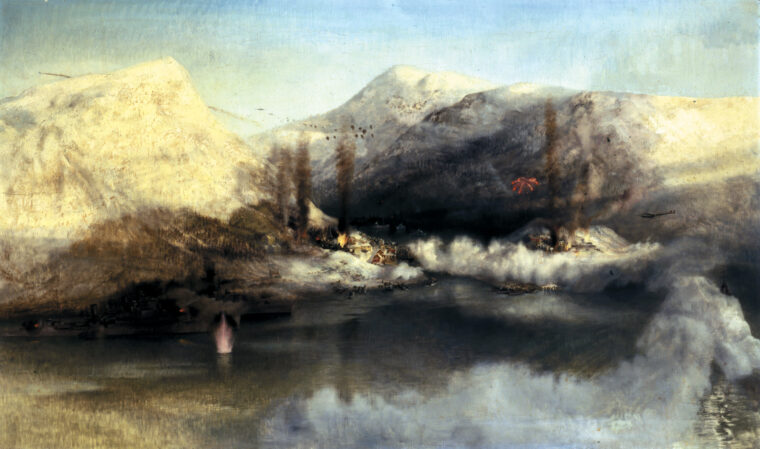
European Theater
They came out of the sea, out of the darkness, and they brought death, terror, and destruction with them. Read more
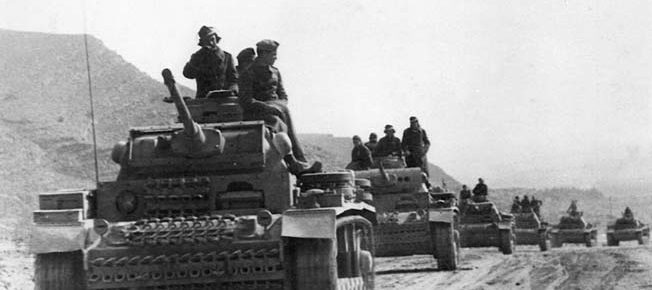
European Theater
The Allied decision to invade North Africa, codenamed Operation Torch, was reached in the summer of 1942 after lengthy—and sometimes bitter—arguments between interested parties. Read more
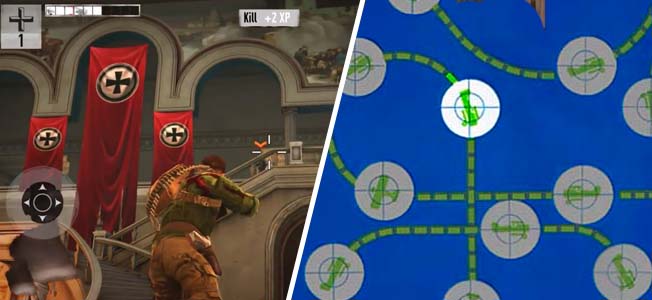
European Theater
Originally part of Ralph Baer’s “Shooting Gallery” expansion, Dogfight was released for the Magnavox Odyssey in 1972. There were no scores per se, and certainly no characters, missions, or upgrades. Read more
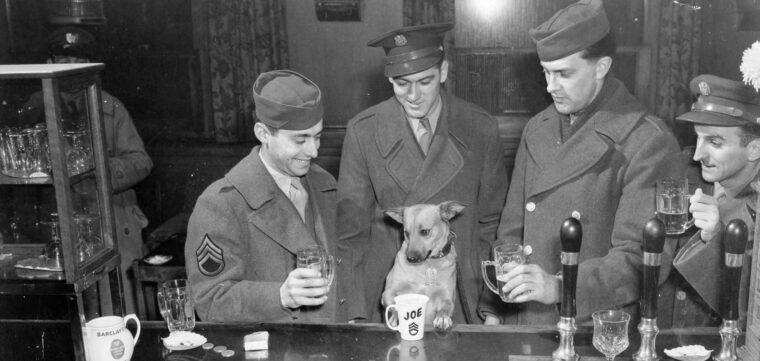
European Theater
American men left behind a great deal when they left home to fight a world war. They lost their identities, their families, and almost all their worldly goods, but they improvised. Read more